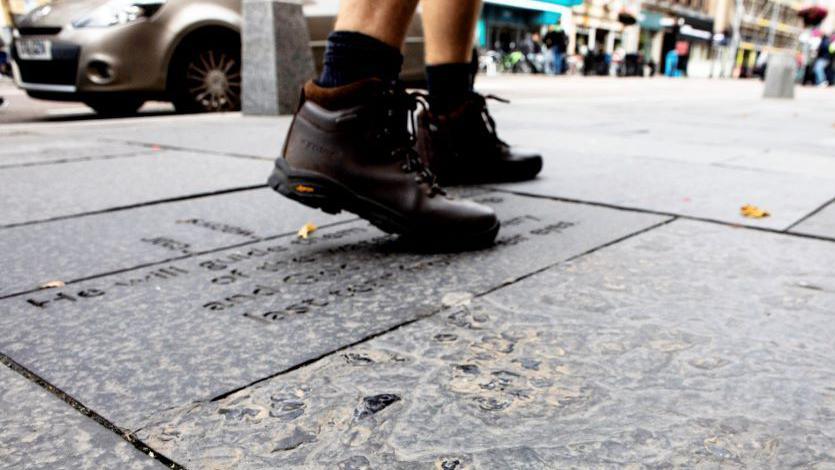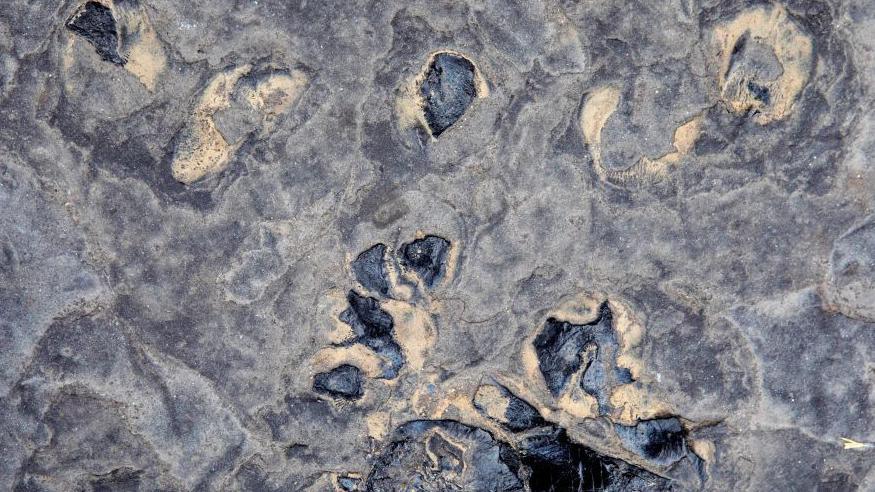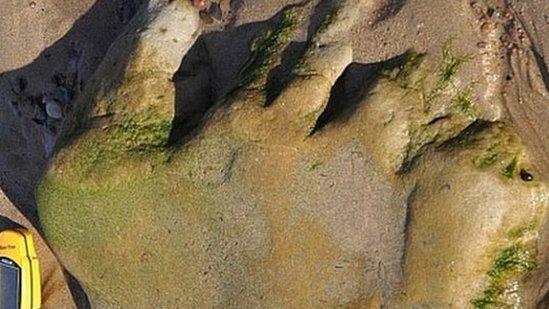Fossils of 385 million-year-old fish found in pavement

The paving slab outside Inverness Town House contains the remains of ancient fish
- Published
Fossils predating the dinosaurs by hundreds of millions of years have been found in a paving stone in a Scottish city centre.
Thousands of people have walked over the remains of 385 million-year-old fish in the slab of Caithness flagstone outside Inverness Town House.
James Ryan, who works at a National Trust for Scotland museum dedicated to Highland geologist Hugh Miller, spotted the fossils while on a wander.
He said: "Whilst fossil fish are known in pavements in cities like Glasgow and Edinburgh, to my knowledge these fossils seem to have gone amiss."

Darker lumps in the Caithness flagstone are fossils
Caithness flagstone quarried in the north Highlands has been used for construction all over the world.
Mr Ryan said: "These fossils in the paving slab are the remains of ancient fish dating to around 385 million years ago - around 140 million years before the first dinosaur.
“Caithness flagstone was laid down as sediment over a period of thousands of years at the bottom of a giant freshwater lake which stretched from the Moray coast up north to Orkney and Shetland."
The fish date from the Devonian period, which are thought to include evidence of a fin.
Mr Ryan said: "I brought them to the attention of a palaeontologist who studies these fossils and they were not aware of them.
"The staff at Inverness museum likewise were not aware of these fossils either."

Thousands of people have walked over the remains of 385 million-year-old fish
- Published20 August 2018
